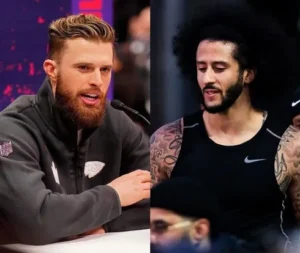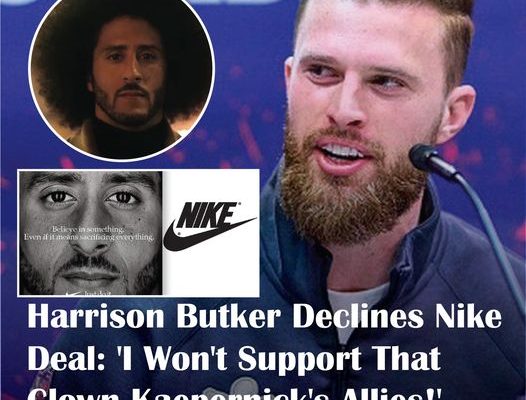Harrison Butker Rejects Nike Endorsement: ‘Still Supporting That Kaepernick Clown? No Thanks.’
NFL kicker Harrison Butker has made headlines with his firm refusal to endorse Nike, criticizing the brand for its continued support of Colin Kaepernick. “Still supporting that Kaepernick clown? No thanks,” Butker remarked, sparking widespread discussion.
“It’s refreshing to hear from someone who isn’t spewing the woke status quo,” Butker continued. “I won’t work for them, or Target, or Planet Fitness. They’re all just a bit too ungodly for my taste. As an NFL star, it’s tough to turn down millions in endorsements, but some things are more important than money—like your mortal soul.”
Butker’s bold stance has ignited debate, with many applauding his commitment to his principles in an industry increasingly dominated by corporate and political interests.
Harrison Butker
Harrison Butker is a professional American football placekicker for the Kansas City Chiefs in the NFL. Known for his accuracy and strong leg, Butker has been a key player for the Chiefs, contributing to their success, including their Super Bowl LIV victory. Recently, Butker made headlines for his controversial commencement speech at Benedictine College, where he expressed his views on various social issues.
Colin Kaepernick

Colin Kaepernick is a former NFL quarterback who played for the San Francisco 49ers. He gained widespread attention in 2016 when he began kneeling during the national anthem to protest police brutality and racial inequality. Kaepernick’s actions sparked a national conversation about social justice and led to both support and criticism. Since then, he has become a prominent activist and continues to advocate for civil rights.
Recent Controversy

The recent controversy involving Butker and Kaepernick stems from Butker’s speech, which criticized various social issues, including abortion rights and gender ideologies. This has led to comparisons between how the NFL has handled Butker’s comments and Kaepernick’s protests. Some fans and commentators have pointed out perceived disparities in the NFL’s responses to both situations



